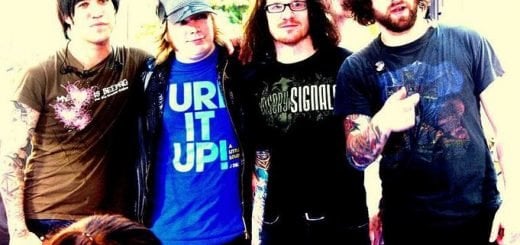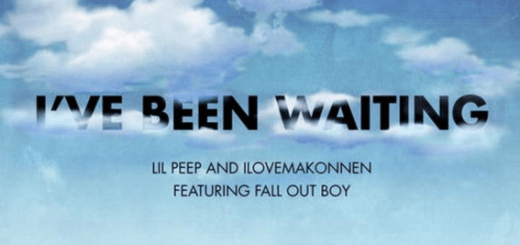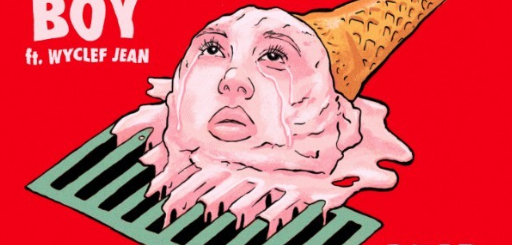Our Lawyer Made Us Change The Name Of This Song So We Wouldn’t Get Sued by Fall Out Boy Lyrics Meaning – Decoding Punk Rock’s Legal Tangles
Lyrics
Take my advice (’cause we are bad news!)
We will leave you high and dry
It’s not worth the hearing you’ll lose
It’s just past 8 and I’m feeling young and reckless
The ribbon on my wrist says, “do not open before Christmas”
We’re only liars, but we’re the best (we’re the best)
We’re only good for the latest trends
We’re only good ’cause you can have almost famous friends
Besides, we’ve got such good fashion sense
Brothers and sisters, yeah, put these words down
Into your notebook (spit lines like these)
We’re friends when you’re on your knees
Make them dance like we were shooting their feet
It’s just past 8 and I’m feeling young and reckless
The ribbon on my wrist says, “do not open before Christmas”
We’re only liars, but we’re the best (we’re the best)
We’re only good for the latest trend
We’re only good ’cause you can have almost famous friends
Besides, we’ve got such good fashion sense
We’re only liars, but we’re the best
We’re only good for the latest trend
We’re only liars, but we’re the best
We’re only good for the latest trend
We’re only good ’cause you can have almost famous friends
Besides, we’ve got such good fashion sense
In the constellation of pop-punk anthems, there are few that shine with as much wry self-awareness as Fall Out Boy’s cheekily titled track ‘Our Lawyer Made Us Change The Name Of This Song So We Wouldn’t Get Sued’. From their 2005 album ‘From Under the Cork Tree’, the song is a whip-smart chug of guitars and witticism that delves into the nuances of fame, artistic authenticity, and the commodification of rebellion.
Breaking down the track exposes the layers beneath its immediate punchy veneer, where Fall Out Boy simultaneously satirizes and succumbs to the very culture that props them up. Let’s dissect this self-referential jaunt through the tumultuous relationship between art and its legal and cultural constraints.
Brothers, Sisters, and Satirical Missives: Unpacking the Paradox
The opening lyrics of the song act as both an invitation and a warning, drawing listeners in with a sense of camaraderie while also cautioning them of the potential risks involved with engaging with the band’s hazardous brand of music. Fall Out Boy cleverly uses the familial terms ‘brothers and sisters’ to create intimacy, then immediately flips the sentiment on its head by suggesting their news is ‘bad’, transforming the relationship from one of affection to one of adversarial challenge.
By advising the listener to put the record down, they pose a dare – do you continue to indulge in what might be deemed culturally or morally corruptible by some, or do you heed the warning? It’s a clever ruse that ropes in the audience under the guise of mutual understanding, only to push them into questioning the integrity of these ‘bad news’ bearers.
Ribbon-Tied Revels: The Tempting Pull of Yuletide Consumerism
One of the track’s most memorable lines, ‘The ribbon on my wrist says, do not open before Christmas’, winks at the commercialization surrounding holidays, especially Christmas. The ribbon symbolizes a gift, but one that’s not to be revealed prematurely. This line serves a double entendre, commenting both on the premature consumption of music before its release and the anticipation-building machine that is the music industry.
Fall Out Boy acknowledges their participation in this hype-oriented culture, underscoring their own recklessness in succumbing to the very cycles of trends and consumerism they critique. Such is the oxymoronic nature of popular music: to rebel against the system while being enveloped within it.
The Trendy Truths of Lies: Unraveling Contradictions
When the chorus chants, ‘We’re only liars, but we’re the best,’ it shines a spotlight on the oft-untold honesty in the music business. They confess to deceit yet take pride in the artistry of their deception, likening themselves to trendsetters who raise lying to an art form.
The song questions the veracity of musical icons and the authenticity of the rebellious image they often sell. It’s a bold indictment of the much-idolized punk scene where being ‘good for the latest trend’ is at odds with genuineness, driving home the point that even rebellion can be commodified.
Dance, Puppets, Dance: The Allure of Almost Fame
The lyric ‘We’re only good ’cause you can have almost famous friends’ is a piercing reflection on the allure of adjacency to celebrity culture. Fall Out Boy confronts the superficiality of friendships within industry circles, where proximity to fame is just another accessory, as vital to the scene as ‘good fashion sense’.
But within this farce, the band acknowledges their own participation. The admission of their foothold in ‘almost fame’ suggests an ambivalence towards their success – they’re necessary puppets in a show where the strings are as visible as they are ignored.
Hearing Loss and The Costs of Cultural Capital
Returning to the warning in the song’s opening – ‘it’s not worth the hearing you’ll lose’ – the line serves as a metaphor for the cultural and personal sacrifices one makes for fame. Listening to Fall Out Boy could cost you more than just your hearing; it might also cost you your sense of identity, or worse, your integrity.
The song emphasizes the price of participating in a system that preaches individuality but often rewards conformity. In signing off with a sardonic farewell, Fall Out Boy leaves their audience to ponder whether the ticket to their show – the cultural capital of their brand – is worth the admission of one’s authentic self.








